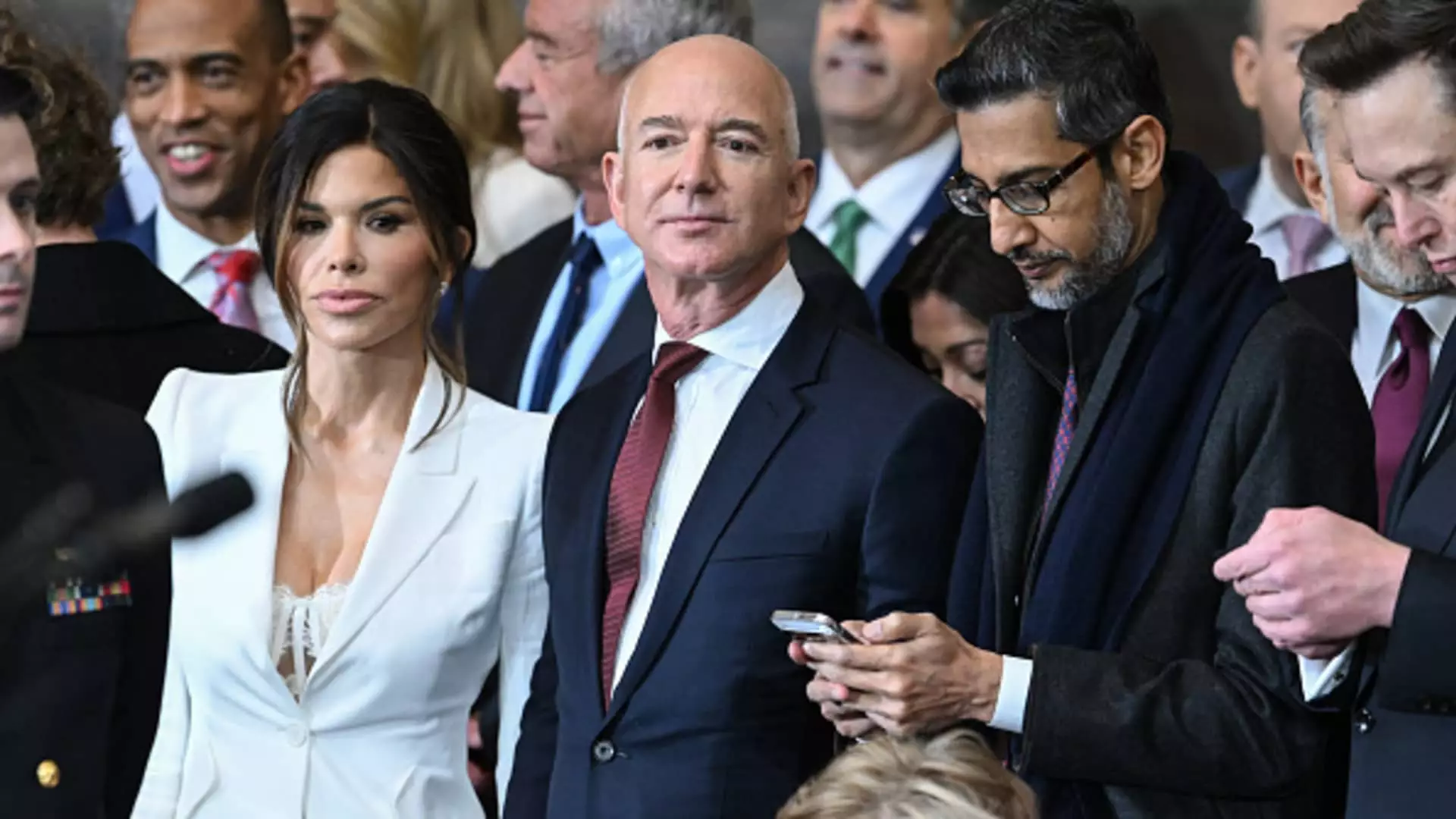In a bold and controversial move, Jeff Bezos, the founder of Amazon and owner of The Washington Post, announced that the newspaper’s opinion pages would now focus solely on promoting “personal liberties and free markets.” This decision has sparked a significant debate on journalistic integrity and editorial independence, rewriting the longstanding narrative of a newspaper’s role in providing a platform for diverse viewpoints. By declaring that opposing perspectives will be excluded from opinion content, Bezos initiates a seismic shift that some herald as necessary while others criticize as a straightforward act of censorship.
The crux of Bezos’s argument lies in the assertion that traditional newspapers no longer need to serve as comprehensive platforms for competing thoughts, a role he believes is adequately filled by the vast expanse of the internet. While he expresses confidence that the principles of free markets and personal liberties resonate strongly with the American ethos, he simultaneously acknowledges that these views are currently underrepresented in the public discourse. The core question remains: Is narrowing the range of opinions a betrayal of the journalistic principle of providing a balanced representation of ideas?
Bezos’s announcement did not go unchallenged. Current and former staffers from The Washington Post voiced their disapproval of this new direction, underscoring a rift that appears to grow deeper with each editorial decision made from above. Former editor Marty Baron, who cultivated a reputation for honoring journalistic rigor during his tenure, expressed his disgust, articulating a sentiment that resonates with many colleagues who fear the erosion of editorial independence.
David Shipley, the Opinion Editor who resigned in response to these developments, emphasized a critical component of editorial leadership—passion for one’s work. In Bezos’s words, Shipley rightly felt that if he could not wholeheartedly support the new editorial policy, leaving was the only option left. This could signify a larger trend of disengagement among journalists discontent with corporate influences dictating editorial choices.
As the paper seeks a new Opinion Editor to align with this modified approach, questions regarding the future of dissenting voices in American journalism loom large. With accusations stretching from claims of favoritism toward Donald Trump to allegations of prioritizing corporate interests over journalistic values, Bezos’s influence is likely to spark more significant discourse on the intersection of politics and business in modern media.
The timing of this policy shift coinciding with a presidential election adds another layer of complexity to an already fraught environment. The Washington Post’s refusal to endorse either Trump or Kamala Harris, a significant deviation from its usual practice, further amplifies perceptions that the paper is steering away from impartiality. Breaking with tradition not only raises eyebrows but also provoked a notable backlash among readers, as evidenced by the cancellation of over 250,000 subscriptions in response to the announcement.
Such drastic alterations to The Washington Post’s opinion framework could alienate a significant portion of its audience, a concerning gamble for a publication that relies heavily on reader trust and engagement. The erosion of editorial independence and the growing perception of media bias culminate in a vital dilemma: can journalism survive in a landscape dominated by ideological silos?
The role of owners in shaping editorial direction is not new. Historical precedents exist, such as Rupert Murdoch’s influence over the New York Post or Sheldon Adelson’s goals with the Las Vegas Review-Journal. However, Bezos’s proactive stance in dictating specific ideological tenets for his paper’s opinion sections raises questions about the ethical implications of ownership in journalism today. This move is garnering attention not just for its content but for the very nature of editorial independence in modern newsrooms.
As opposing opinions within The Washington Post clamor for acknowledgment, some journalists maintain that the hard news reporting will remain unchanged, emphasizing the integrity of news coverage. Yet, concerns persist that if editorial control extends beyond opinion pieces, drastic impacts on the journalistic process could emerge, potentially stifling dissent within the news department.
Jeff Bezos’s newly defined editorial focus for The Washington Post marks a pivotal moment in the ongoing dialogue about the responsibilities of the press and the impact of ownership on media narratives. By prioritizing selected ideological views over a broad spectrum of opinions, the publication risks alienating readers and challenging the foundational tenets of journalistic integrity. The aftermath of this decision will likely shape the discourse surrounding media influence in politics, leaving an indelible mark on how news is conceived, produced, and disseminated in an era characterized by increasing polarization.

